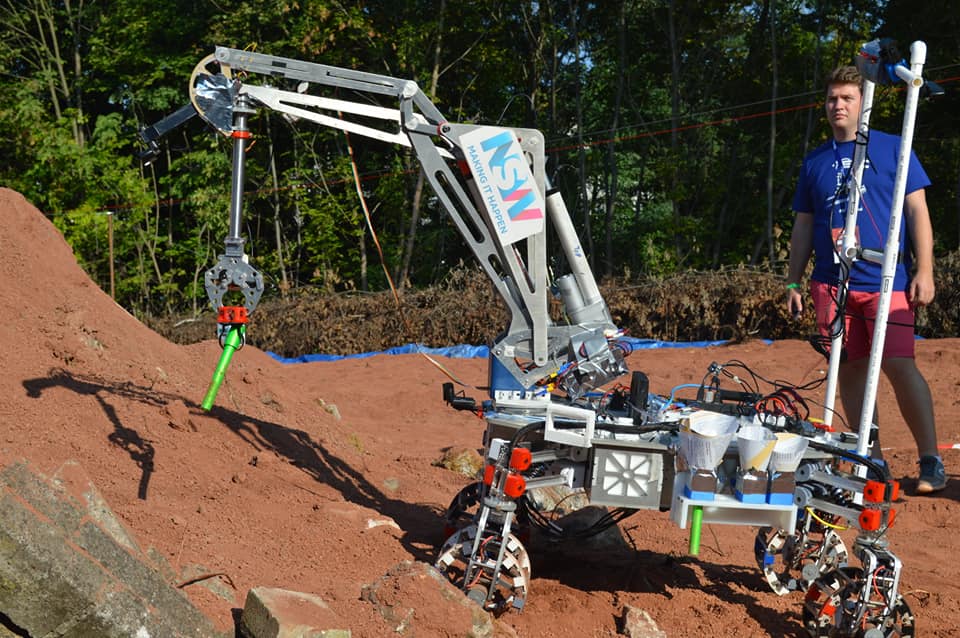A team of eight UNSW Engineering students have come eighth in the European Rover Challenge (ERC), one of the world’s biggest international space and robotics events held in Poland, defeating 57 other teams from around the globe.
In the competition, teams tackle five different tasks that are similar to those performed by rovers on the surface of Mars and the moon. The tasks range from collecting soil samples to searching and delivering objects to containers at different locations. The goal of the competition is to promote innovations in research and business projects with a view to future space explorations.
As Australia’s only representative, UNSW’s Off-World Robotics team – part of the long-running BLUEsat student-led project – achieved their best placing in the competition to date.
Over the last two years, the BLUEsat team undertook a major redesign of their rover so that any of its components can be easily modified for specific challenges without the team having to worry about integration or connection issues. The design also allows future members to create new systems without the concern of how it may affect the other components on board the rover.
Team leader Thomas Renneberg said he was proud of the BLUEsat team and their dedication to getting the job done.
“This is the best result that BLUEsat has achieved at the competition, made even more outstanding by this being a first iteration vehicle,” he said.
“Our team has been greatly supported by The Faculty of Engineering Student Opportunities Team, the Makerspaces at the MCIC and Willis Annex, UNSW ARC and NSW Department of Industry. Without their help we would have never have gotten to this stage. I’m convinced the team will further improve from here and I can't wait to see the results.”
The team was mentored by Associate Professor Elias Aboutanios who said that student-led projects such as BLUEsat were a valuable educational experience for students.
“It is a great pleasure to mentor such a well-organised and highly driven group. It is something that is rewarding on many levels as I watch them learn and develop way beyond what a normal university curriculum provides,” A/Professor Aboutanios said.
The team included students Anita Smirnov, Jessica Phe Li, Yue Huang, Sajid Ibne Anower, Simon Patrick Ireland, Quoc Trung Vo, Yi Wei Han, team leader Thomas Renneberg and academic leader Associate Professor Elias Aboutanios.
The Roving Challenge website has the final results and if you are interested in joining or learning more about BLUEsat, visit their website.
